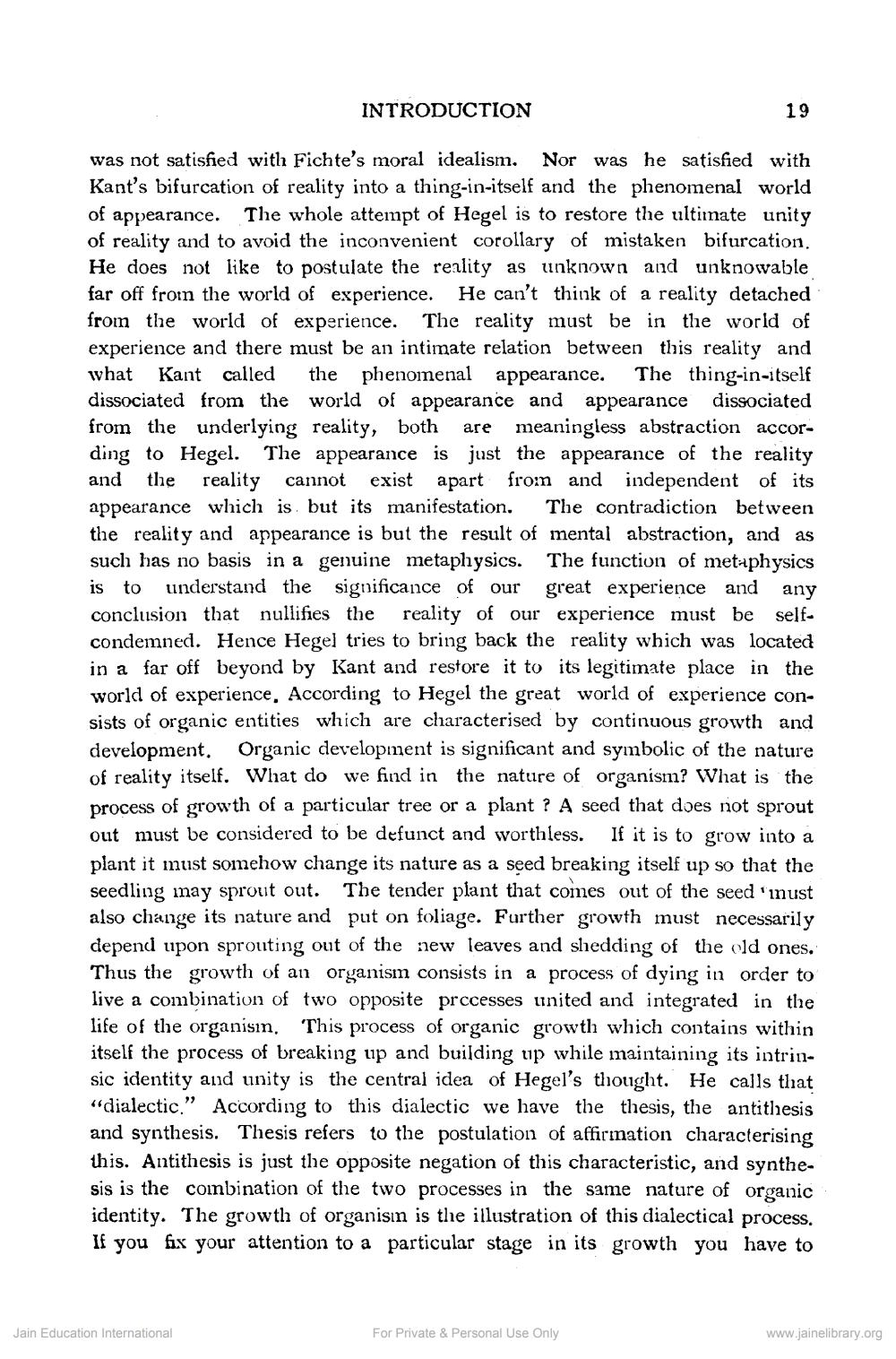________________
INTRODUCTION
19
was not satisfied with Fichte's moral idealism. Nor was he satisfied with Kant's bifurcation of reality into a thing-in-itself and the phenomenal world of appearance. The whole attempt of Hegel is to restore the ultimate unity of reality and to avoid the inconvenient corollary of mistaken bifurcation. He does not like to postulate the reality as unknown and unknowable far off froin the world of experience. He can't think of a reality detached from the world of experience. The reality must be in the world of experience and there must be an intimate relation between this reality and what Kant called the phenomenal appearance. The thing-in-itself dissociated from the world of appearance and appearance dissociated from the underlying reality, both are meaningless abstraction according to Hegel. The appearance is just the appearance of the reality and the reality cannot exist apart from and independent of its appearance which is but its manifestation. The contradiction between the reality and appearance is but the result of mental abstraction, and as such has no basis in a genuine metaphysics. The function of metaphysics is to understand the significance of our great experience and any conclusion that nullifies the reality of our experience must be selfcondemned. Hence Hegel tries to bring back the reality which was located in a far off beyond by Kant and restore it to its legitimate place in the world of experience, According to Hegel the great world of experience consists of organic entities which are characterised by continuous growth and development. Organic development is significant and symbolic of the nature of reality itself. What do we find in the nature of organism? What is the process of growth of a particular tree or a plant ? A seed that does not sprout out must be considered to be defunct and worthless. If it is to grow into a plant it must somehow change its nature as a seed breaking itself up so that the seedling may sprout out. The tender plant that comes out of the seed inust also change its nature and put on foliage. Further growth must necessarily depend upon sprouting out of the new leaves and shedding of the old ones. Thus the growth of an organism consists in a process of dying in order to live a combination of two opposite processes united and integrated in the life of the organisin. This process of organic growth which contains within itself the process of breaking up and building up while maintaining its intrinsic identity and unity is the central idea of Hegel's thought. He calls that “dialectic." According to this dialectic we have the thesis, the antithesis and synthesis. Thesis refers to the postulation of affirınation characterising this. Antithesis is just the opposite negation of this characteristic, and synthesis is the coinbination of the two processes in the same nature of organic identity. The growth of organisin is the illustration of this dialectical process. If you fix your attention to a particular stage in its growth you have to
Jain Education International
For Private & Personal Use Only
www.jainelibrary.org




